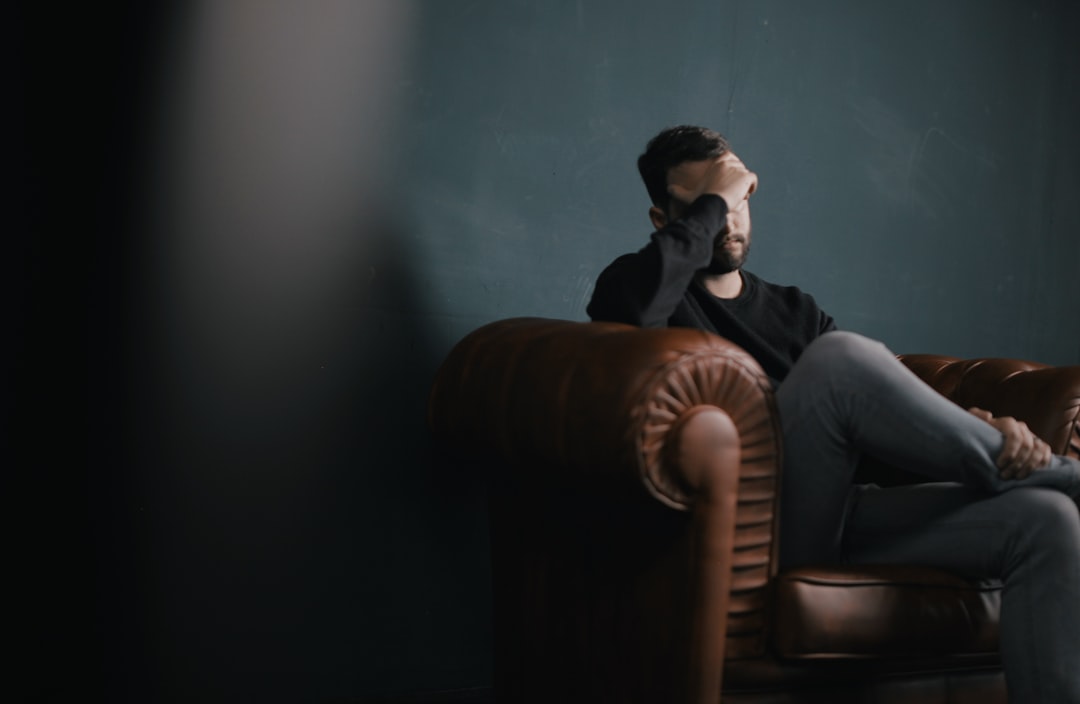I’m starting a new series in the Conquering Burnout publication: I’m gonna call it Truths & Misconceptions about Burnout.
Like the name implies, in this series I’m going to talk about general beliefs, opinions and misconceptions that make burnout such a misunderstood and taboo topic.
My goal with this series of articles is to illuminate the general “truths” and misconceptions about burnout, break them down, analyze them, and offer a new perspective on burnout, its related symptoms, causes and recovery.
So this is the first article in the series: if you don’t want to miss any of the upcoming articles in the “Truths & Misconceptions about Burnout” series, make sure you subscribe to this newsletter. It’s totally free: once a week you’ll receive a new article in your email inbox right when it’s published.
One reason why burnout is such a taboo and misunderstood topic, is because of the fact that there’s an opposing opinion about it in the public.
Like the picture of a meme above illustrates ironically, opinions about burnout are divided in two groups: there are people and experts who don’t believe in burnout and think it’s a scam, they laugh and joke about it and don’t take it seriously.
And there are other people who have experienced burnout and experts who know that the condition is not that innocent and they are a bit concerned about it.
So in the area of burnout, like in politics, we have two polarities: two radical spheres whose opinions and beliefs are extremely opposing and conflicting — and this in turn creates and leads to confusion, misunderstanding and ignoring the topic.
Let’s explore both opposing beliefs further in detail.
Burnout is not real!
As with most things in life, so with burnout, we have people who don’t believe in it and are consciously fighting against it.
Maybe it’s because burnout related conditions — classic burnout, adrenal fatigue, Chronic Fatigue Syndrome or Myalgic Encephalomyelitis and Hashimoto’s disease — are still not widely approved by medical doctrine.
Maybe it’s because of the lack of scientific studies and clinical trials that don’t confirm the diagnosis of burnout conditions.
Maybe it’s a coping mechanism: because we don’t understand something, we’re afraid of it and we’ll ignore it or even fight against it.
Or maybe it’s because some people have taken advantage of burnout as a way to get sick leave or as a “permission for being lazy”. Because of those cases, the belief that “burnout is fake and not real” started to spread and reinforce any of the existing “negative” beliefs that people had about burnout.
Anyway, a part of the population shares the belief that burnout is not real. They believe that burnout is a scam, that the condition and disease isn’t real and that it doesn’t exist. And because of that, they believe that people who “suffer” from burnout are weak, soft or that there’s something wrong with them.
Because of that belief about burnout, if we struggle and suffer from a burnout condition, we start to think and believe that it’s our fault: that it came to it because we’re weak, that we can’t handle stress and life’s demands, that there’s something wrong will us, and that we’re a “fake” since the society and people around us don’t believe us and in our condition.
Burnout is a serious condition and disease
On the other hand, on the other side of the spectrum, we have those who have experienced an extreme versions of burnout — an extreme version of adrenal fatigue, Chronic Fatigue Syndrome or Myalgic Encephalomyelitis or Hashimoto’s autoimmune disease — and tell the story of a life threatening disease.

Because the symptoms in those extreme cases are so extreme and difficult to treat and cure, some people are immobilized for several months, can’t do anything and sometimes don’t ever fully recover.
Because of that, the belief that burnout is a severe disease began to spread and with it fear and anxiety about it.
But in most cases, burnout and its symptoms are not that extreme and are more like a sickness or disease and can be fully overcomed.
Truth lies somewhere in the middle
In my opinion, like with many things in life, truth is found somewhere in the middle, somewhere between the two extremes.
Burnout is a real thing. It’s one of those modern conditions that are non very well understood. It got a lot of attention until the Covid epidemy started in the beginning of 2021, but I think it’s a topic that will get more and more attention in the future.
Althogh burnout can be a serious condition, most people will not experience the extreme version of it.
In most cases, burnout is and feels like getting sick with a flu or some sort of infection disease . It puts us in bed for a certain time period — maybe for a few days — and then it takes a few weeks or months — depending on the intensity of it — to fully recover and overcome it.
What makes burnout more tricky in comparison to getting sick with a flu or other form of diseases, is the mental side of it.
Burnout usually affects both our body — our physical condition — and our mind and emotional health. Physical symptoms — general fatigue that doesn’t go away solely with sleep and rest, sleep problems and insomnia, headaches, heart palpitations, etc. — are accompanied by problems with mental health: loss of motivation, problems with concentration and inability to do mental work, sense of failure and self-doubt, decreased satisfaction and sense of accomplishment, fear, anxiety, melancholy and even depression.

The mental and emotional struggles and the fact that we don’t understand and know the condition combined create a lot of worry, fear and anxiety about what’s going on with us, whether or not we’re going to be fine or not, and if we’re ever going to fully recover and be our “normal selves” again…
The mental and emotional struggles combined with physical symptoms esagerate the condition, its symptoms and negatively affect our ability to recover.
But in most cases people recover fully from burnout and come out on the other side better and stronger: a lot of people report that their burnout has helped them gain and learn new insight about themselves and their life and has helped them become a better version of themselves.
In some cases — after a longer and more intense episode or after multiple episodes — burnout can leave some long-term consequences. I think of it as a “chronic injury”: burnout can — like some athletic injuries — become something that negatively affects a part of our daily lives.
To round this up: Burnout condition is a real thing. It’s not a “fake” or a “scam” — quite the opposite, it can be quite a challenging and demanding condition.
That’s why we need to focus more on the topic of burnout, illuminate it, defang negative beliefs about it and bring it closer to people and help them conquer it by talking about its awareness, prevention and recovery.
As someone who has suffered from burnout — and still occasionally struggles with it — I feel a strong purpose and to do just that: to talk, write and create content about burnout and its related topics — stress, nutrition, lifestyle, mindset and psychology, passion and purpose, well-being and mental health, — alongside burnout awareness, prevention and recovery.
Besides curating this newsletter and creating content on social media, I’m also working on an online course about burnout prevention and recovery. In the course I will teach you everything I’ve learned from my burnout journey: what is burnout, why it comes to it, how to prevent it and how to overcome it if you suffer from it.
The course is in the making and will be available sometime in the second half of 2022. But you can join the waitlist and get updates on its progress and when it’s about to launch.
Members of the waitlist will get a limited special offer when the course launches, so make sure to secure your spot and grab that special offer!
That’s it for this article. I would love to hear your opinions, questions or suggestions for the following articles.
If you enjoyed this article, share it with those you think will benefit from it.
If you have a question, an idea for a topic and suggestions, use the form linked below and I will answer it in next newsletters.
You can also follow me on social media for more tips, content and insights about burnout awareness, prevention and treatment.
I keep this newsletter free so I can help more people. If you like my work and you want to support me, you can donate. I'll be grateful from the bottom of my heart!
Love and take care of yourself, forget about worries and enjoy life! ✌
~ Jani ❤







